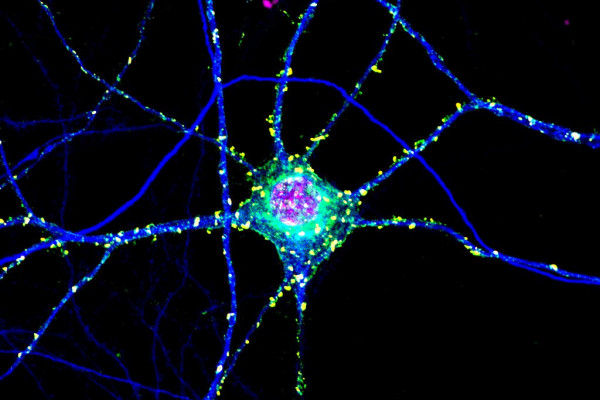Researchers have used stem cells to make neural implants more refined and with less scar...
Interviews with Scientists
Interviews about medicine, science, technology and engineering with scientists and researchers internationally...
Lasers are helping to create energy by using the suns rays.
One of a family of genes called Sirtuins, SIRT1 is one of seven human versions of genes found across pretty much all...
Michael Shannack has been studying fruit flies carrying an altered version of a gene called GSK3 which have longer...
I spoke to David Gems, professor of biogerontology at UCL, and asked him what we mean by “ageing" from a...
Sequencing your genes may mean better treatment but what happens to your genome once it has been sequenced? How is...
How facial recognition technology is helping diagnose rare diseases.
A gene that could cause a heart attack in one person, could have no effect on another. What could this mean for the...
Genes can determine everything about you - past, present and future - but how are they sequenced?
Expanding waist lines puts people at greater risk of developing ten of the most common cancers.
New research is showing that plants aren't such shrinking violets, and are communicating with each other through...
New research is showing that Ancient Egyptians were mummifying their dead a lot longer ago than previously imagined,...
New evidence suggests our theory of how the moon formed could be wrong.
In the news this month was a new study showing that gene variations linked to reading are also linked to maths.
And finally it’s time for our gene of the month, and in keeping with our theme of vision it’s Pax6.
At University College London’s Institute of Ophthalmology, Dr Rachael Pearson and her team are developing ways to...
To find out more about how organisms, including humans, detect light - through special cells called photoreceptors -...
Children in Britain are going to be taught computer programming in schools as part of the new curriculum in September.
The comet chaser which has caught up with its quarry after a ten year journey.
There's lots of both good and bad press surrounding video games. But what should we believe?
Scientists have made origami-inspired robots that are capable of folding and unfolding themselves.
Obese bears might help further our understanding of how to treat the growing epidemic of type 2 diabetes.
The microbes inside of our stomachs may be affecting our mood, and even behaviour...
